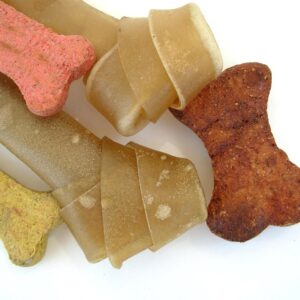Revolutionizing Canine Nutrition: The Future of Dog Food
Dogs have been our faithful companions for thousands of years, providing us with companionship, loyalty, and love. As a result, we have a responsibility to ensure that they are provided with the best possible care, including nutrition. In recent years, there has been a growing trend towards more natural and holistic approaches to canine nutrition, as pet owners seek out ways to improve their furry friends’ health and well-being. This shift in thinking has given rise to a new generation of dog food products that are challenging the status quo and revolutionizing the way we think about feeding our four-legged friends.
The traditional approach to canine nutrition has long centered around the use of processed kibble and canned foods, which are often heavily processed and filled with artificial ingredients, preservatives, and fillers. While these foods have been convenient and cost-effective for many pet owners, they are not necessarily the best options for our furry friends’ health. The rise of health-conscious consumers has led to a growing demand for more natural and wholesome alternatives that prioritize quality ingredients and nutritional content.
One of the key trends in the evolution of canine nutrition is the move towards raw feeding. Raw feeding involves providing dogs with a diet that closely mimics what they would eat in the wild, including raw meat, bones, organs, and vegetables. Advocates of raw feeding argue that this approach provides dogs with a more biologically appropriate diet that is rich in nutrients and free from artificial additives and preservatives. Raw feeding has gained popularity in recent years, with many pet owners reporting improvements in their dogs’ energy levels, coat health, and overall well-being.
Another trend in the evolution of canine nutrition is the rise of natural and organic dog foods. These products are made with high-quality, human-grade ingredients that are free from artificial additives, preservatives, and fillers. Natural and organic dog foods are becoming increasingly popular among health-conscious pet owners who are looking for ways to improve their dogs’ diets. These products often include premium proteins, such as grass-fed beef, free-range chicken, and wild-caught fish, along with wholesome fruits, vegetables, and superfoods. By prioritizing quality ingredients and nutritional content, natural and organic dog foods are revolutionizing the way we think about feeding our furry friends.
In addition to raw feeding and natural and organic dog foods, another trend in the evolution of canine nutrition is the use of personalized diets. Just as humans have unique dietary needs based on factors such as age, breed, and activity level, so too do dogs. Personalized diets take into account these individual differences to create a customized feeding plan that meets each dog’s specific nutritional requirements. Pet owners can work with veterinarians and nutritionists to develop personalized diets that are tailored to their dogs’ needs, ensuring that they receive the optimal balance of nutrients for their health and well-being.
The future of dog food is bright, with many exciting developments on the horizon that promise to revolutionize the way we think about feeding our furry friends. One emerging trend is the use of novel protein sources, such as insect-based and plant-based proteins. Insect-based proteins, such as crickets and mealworms, are rich in nutrients and have a lower environmental impact than traditional animal proteins. Plant-based proteins, such as pea and lentil proteins, are also gaining popularity as a sustainable and cruelty-free alternative to meat-based proteins. By incorporating novel protein sources into dog foods, manufacturers are able to provide dogs with a more diverse and sustainable diet that meets their nutritional needs.
Another exciting development in the future of dog food is the use of functional ingredients, such as probiotics, prebiotics, and antioxidants. These ingredients have been shown to have a positive impact on dogs’ digestive health, immune function, and overall well-being. Probiotics are beneficial bacteria that support the health of the gut microbiome, while prebiotics feed these beneficial bacteria and promote their growth. Antioxidants help to protect cells from damage caused by free radicals and oxidative stress. By incorporating functional ingredients into dog foods, manufacturers are able to provide dogs with added health benefits beyond basic nutrition.
Technology is also playing a role in revolutionizing canine nutrition, with the rise of personalized feeding solutions and meal delivery services. Pet owners can now use apps and websites to input their dogs’ information, such as age, breed, and activity level, to receive customized feeding recommendations and meal plans. Meal delivery services offer convenient and hassle-free options for pet owners who want to feed their dogs fresh, high-quality meals but may not have the time or resources to prepare them themselves. These services deliver pre-portioned meals made with quality ingredients directly to pet owners’ doors, ensuring that their dogs receive the best possible nutrition.
In conclusion, the future of dog food is bright and full of exciting possibilities. From raw feeding and natural and organic dog foods to personalized diets and novel ingredients, there are many innovative approaches to canine nutrition that are revolutionizing the way we think about feeding our furry friends. By prioritizing quality ingredients, nutritional content, and individualized care, pet owners can ensure that their dogs receive the best possible diet for their health and well-being. As we continue to evolve and innovate in the field of canine nutrition, we can look forward to a future where every dog is provided with the optimal nutrition they need to live happy, healthy lives.


